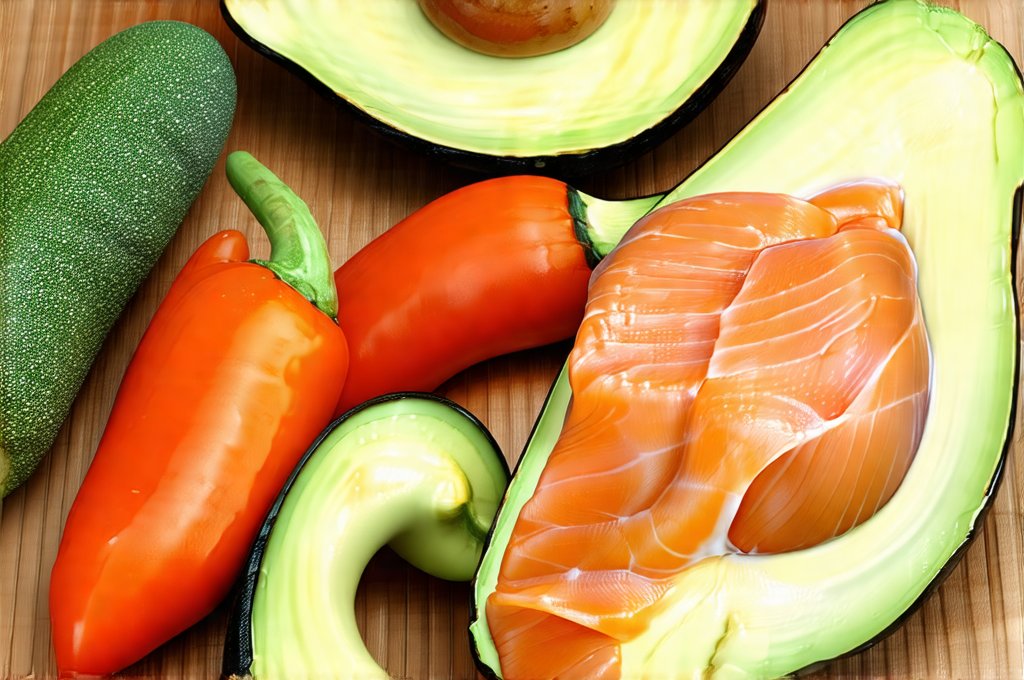The discomfort of an irritated stomach is something most people experience at some point – whether from occasional indigestion, stress, dietary choices, or underlying conditions. That burning sensation, bloating, nausea, and general unease can significantly disrupt daily life. Often, the immediate response is to seek quick fixes, but a more sustainable approach involves understanding how certain foods can naturally soothe the digestive system and reduce acidic irritation. It’s about building a dietary foundation that supports gut health rather than exacerbating it. This isn’t simply about avoiding trigger foods (though that’s important too); it’s about proactively incorporating calming, nourishing options.
Many factors contribute to stomach upset, making personalized dietary adjustments crucial. What works for one person may not work for another. However, there are broad categories of food known to be gentler on the digestive system and less likely to increase acid production. These foods tend to be low in acidity themselves, easy to digest, and often contain compounds that can help protect the stomach lining or neutralize excess acid. This article will explore various food choices that may offer relief from acidic irritation and promote a calmer digestive experience, focusing on practical ways to integrate these options into your diet. Remember, consistent observation of how your body responds is key. You might also find it helpful to learn how to identify foods that calm the gut and reduce irritation.
Soothing Food Groups & Dietary Strategies
One of the most effective strategies for calming an irritated stomach involves focusing on foods that are naturally low in acidity. Highly acidic foods like citrus fruits, tomatoes, and vinegar can often aggravate symptoms, while alkaline or neutral options tend to be much better tolerated. Beyond acidity levels, the complexity of digestion also plays a role. Simple carbohydrates are generally easier to digest than complex ones, and lean proteins are preferable to fatty meats. A cornerstone of this approach is adopting a pattern of smaller, more frequent meals instead of large portions, which can overwhelm the digestive system. This helps maintain stable blood sugar levels and reduces pressure on the stomach. Post-meal routines can also significantly reduce discomfort.
Furthermore, fiber plays a nuanced role. While generally beneficial for gut health, excessive amounts of certain types of fiber (especially insoluble fiber) can sometimes worsen irritation in sensitive individuals. Soluble fiber, found in foods like oats, bananas, and applesauce, is often more easily tolerated as it absorbs water and forms a gel-like substance, slowing digestion and potentially reducing acid reflux. Hydration is also paramount; drinking plenty of water helps dilute stomach acid and promotes healthy digestive function. It’s not about eliminating entire food groups but rather making informed choices within those categories based on individual tolerance and observing the body’s response. Understanding hormones and stomach pain can also help you identify root causes.
A key dietary strategy centers around identifying personal triggers. Keeping a food diary can be incredibly helpful in pinpointing which foods consistently cause discomfort. This isn’t necessarily about labeling foods as “bad” but understanding how your body reacts to them. For example, some people find dairy products exacerbate their symptoms, while others have no issues. Others might struggle with spicy foods or caffeine. The goal is to develop a personalized plan that minimizes irritation and maximizes comfort. Consider exploring an elimination diet under the guidance of a healthcare professional if you suspect specific food sensitivities.
Gentle Fruits & Vegetables
Fruits and vegetables are generally excellent additions to a stomach-soothing diet, but selection matters. Bananas are renowned for their ability to neutralize stomach acid due to their alkaline nature and contain pectin, a soluble fiber that can soothe the digestive tract. Applesauce (unsweetened) is another good option, offering similar benefits. Melons like cantaloupe and honeydew are also typically well-tolerated and hydrating. Avoid highly acidic fruits such as oranges, grapefruit, lemons, and pineapple if you’re experiencing irritation.
When it comes to vegetables, steamed or boiled options are often easier to digest than raw ones. Potatoes (without the skin) are gentle on the stomach, while leafy greens like spinach and kale provide essential nutrients without being overly irritating—provided they’re cooked until tender. Cucumber is known for its high water content and cooling properties, making it a refreshing choice. Conversely, vegetables from the nightshade family – tomatoes, peppers, eggplant – can sometimes aggravate symptoms in sensitive individuals. It’s also worth understanding foods that cause gas and bloating to prevent discomfort.
Consider incorporating these gentle fruits and vegetables gradually to assess your tolerance. Start with small portions and monitor how your body responds. A simple smoothie made with banana, spinach, and almond milk can be a nourishing and easily digestible meal or snack. Remember that cooking methods significantly impact digestibility; steaming, boiling, or baking are generally preferred over frying or consuming raw produce if you’re experiencing stomach irritation.
Calming Beverages & Hydration
Hydration is fundamental to digestive health and plays a significant role in calming an irritated stomach. Water should be your primary beverage of choice – aim for at least eight glasses per day. Beyond water, certain herbal teas can offer soothing benefits. Ginger tea, for example, has been traditionally used to alleviate nausea and aid digestion. Chamomile tea is known for its calming properties and may help reduce inflammation in the digestive tract. Peppermint tea can also be helpful for some, but it’s worth noting that it can sometimes worsen acid reflux in others – observe your body’s response carefully.
Avoid beverages that are highly acidic or caffeinated, such as coffee, citrus juices, carbonated drinks, and alcohol. These can exacerbate stomach irritation and contribute to heartburn. Milk, while seemingly soothing for some, can actually increase acid production in others, so it’s important to monitor your individual response. If you find milk triggers discomfort, consider alternatives like almond milk or oat milk.
A simple hydration strategy involves sipping water throughout the day rather than drinking large amounts at once. This helps dilute stomach acid gradually and prevents overwhelming the digestive system. Infusing water with cucumber slices or mint leaves can also make it more palatable and refreshing. Consider warming your beverages slightly, as very cold drinks can sometimes cause muscle spasms in the digestive tract. Sleep and digestion are also closely linked, so prioritize rest!
The Role of Probiotics & Prebiotics
The gut microbiome – the community of microorganisms living in our digestive tract – plays a crucial role in overall health, including digestion. An imbalance in this microbiome (dysbiosis) can contribute to stomach irritation and other gastrointestinal issues. Probiotics, found in fermented foods like yogurt (with live cultures), kefir, sauerkraut, and kimchi, introduce beneficial bacteria into the gut, helping restore balance. However, if dairy is a trigger, non-dairy probiotic sources are essential. You may also want to explore foods that naturally detox the gut for optimal health.
Prebiotics, on the other hand, are types of fiber that feed the good bacteria already present in your gut. Foods rich in prebiotics include bananas (again!), oats, garlic, onions, and asparagus. By consuming both probiotics and prebiotics, you can create a synergistic effect that supports a healthy gut microbiome and improves digestive function.
It’s important to note that introducing probiotics too quickly or drastically can sometimes cause temporary bloating or gas. Start with small amounts of fermented foods and gradually increase your intake as tolerated. Probiotic supplements are also available, but it’s best to consult with a healthcare professional before starting any new supplement regimen. A healthy gut microbiome is not just about reducing irritation; it’s about building long-term digestive resilience.
It’s crucial to remember that this information is for general knowledge and informational purposes only, and does not constitute medical advice. If you are experiencing persistent or severe stomach irritation, please consult with a healthcare professional to determine the underlying cause and receive appropriate treatment. Self-treating can be harmful, and a proper diagnosis is essential for effective management of your symptoms.


















